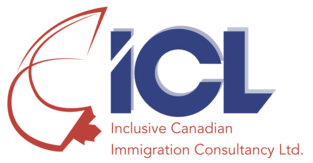STUDY IN CANADA
Studying in Canada not only equips you with a world class Degree, Diploma, Certificate, it allows for sound and expeditious path for youth around the world to live permanently in Canada. After completing a minimum of one year University or College program, you will be allowed to stay in Canada on an open work permit. If during that time you gain at least one year of skilled work experience, this will allow you to successfully proceed to Express Entry – Federal Skilled Worker, Federal Skilled Trades, Canadian Experience Class stream. You will also have the option to apply under the Provincial Nomination Class.
Twin benefits of the Study Program in Canada are spelled out in the following:
- “Authorize full-time international students attending designated institutions to work part time during their studies provided they hold a valid study permit and are enrolled in an academic, vocational or professional training program of a duration of at least six months and
- “re-focus work permit access for international students to better support the objective for which these programs were originally designed — providing international students with opportunities to gain valuable Canadian work experience, which will in turn help eligible students meet the requirements to apply for permanent residence in Canada.”
-
REQUIREMENTS
Candidates who wish to come to Canada to study must:
- have a letter of acceptance from an (acceptable) educational institution;
- provide a bank statement with sufficient funds of $20,000 for the duration of studying on your account (or your sponsor’s account) and other proof of funds;
- have no criminal record;
- pass medical examination.
- Experience has shown that these are the benefits of attending a post-secondary institution in Canada:
College/university life allows one to get accustomed to a Canadian culture.
Mature students have a chance to improve/upgrade their professional skills which often leads them to a successful career and a smooth immigration process
During their studies international students have an opportunity to work part-time 20 hours a week (30 hours in non-academic periods) which helps them to build up their resumes.
International students have an opportunity to network, get introduced to different companies/employers at their campus job fairs which later helps them find high-skilled jobs.
Inclusive Canadian Immigration Consultancy Ltd. will assist you all the way from helping you choose the type of educational institution and the educational program to getting your acceptance letter and obtaining a study permit and an entry visa. If you do not meet the language requirements for being accepted to college or university (or do not have IELTS General results), we will also help you get enrolled into a language program and obtain a conditional acceptance to the college/university of your choice.
-
Can my spouse or common-law partner work in Canada?
It depends. If your spouse or common-law partner wants to work in Canada, they must apply for their own work permit. Normally, they must meet the same requirements that you do. In some cases, your spouse or common-law partner must apply for a work permit for a specific job. The employer may have to get a Labour Market Impact Assessment (LMIA) from Employment and Social Development Canada. An LMIA allows an employer to hire someone for a specific job. However, your spouse or common-law partner may be able to apply for an open work permit—allowing him or her to accept any job with any employer—if you meet these conditions you are:
- allowed to work in Canada for at least six months,
- doing work in Canada that meets a minimum skill level (usually work that requires at least a college diploma) and
- doing a job listed in Skill Level 0, A or B in the National Occupational Classification.
If your spouse or common-law partner gets an open work permit, it is normally valid for the same period as yours.
In some cases, your spouse or common-law partner will need a medical exam.

